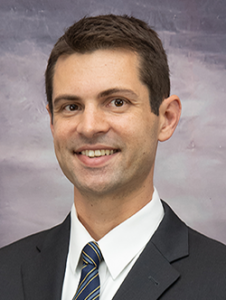
An Exceptional Time for Industry Role Models
By Phil Crone, Executive Officer
Albert Einstein once said, “In the middle of every difficulty lies opportunity.” Several Dallas BA members including developers, suppliers, Realtors and professional service providers have asked what they can do in a time when social distancing has curtailed traditional networking. I’m not really fond of the term “social distancing.” We need to be socially present even when the circumstances force us to be physically distant.
In fact, this is an exceptional time for you to be an industry role model. Being a beacon in a sea of misinformation can help build your brand around integrity. This opportunity comes to you free of charge thanks to social media and the Dallas BA, who is more than willing to share your insight.
With a general understanding of crisis communication principles, anyone can do this. These principles are pretty well established; proclaim uncertainty, don’t over-reassure and admit mistakes. Also, stay in your lane.
On that note, there are fundamental questions about this pandemic that the data has yet to answer. Examples include: How far has it reached? How deadly is it? How long does immunity last? How well does each kind of mask protect us? When will we get a vaccine? How effective will it be? Where will cases surge next? When will we get back to normal?
Every armchair epidemiologist seems to have an answer, proclaiming as gospel every new “study” that furthers their preconceived, and often politically motivated, hypothesis. While the answers to those questions are relevant to us, they cannot be answered by us, so don’t try. Stay in your lane.
Your lane, or area of expertise, includes the impact on your business. Are you seeing any supply chain issues? If so, from where? Are buyer attitudes or preferences changing? Are you encountering legal or regulatory challenges? What factors are you watching that impact pricing? What safety protocols are you following and are they proving to be effective? Everyone in the industry, especially builders, values this information and is thirsty for it.
Consistently sharing your unique insight is a surefire way to earn followers and ultimately customers. Especially in an industry that is often less than inclined to share. Remember, we are all in this together. Everyone is struggling with similar problems and has something to offer on how to solve them.
Many aspects of crisis communication are counterintuitive. It is not easy to tell people you are unsure, especially when you are trying to hold yourself out as an expert in your field. However, we’ve seen reporters and experts delete a lot of nuance to make themselves and their sources sound more absolute than the evidence justifies.
Resist the temptation to proclaim absolutes like “This is the way it is going to play out.” Instead, let people know how you are approaching a certain issue or problem, state your opinion, but leave yourself open to changing your mind as things play out and new evidence emerges.
Acknowledge opinion diversity. If a competitor is thinking something differently, recognize it. “Winning” and “losing” here does not mean being proven right or wrong. How you analyze the problem will ultimately have more to do with being an industry role model and raising your integrity.
Although the majority of the news lately for housing has been good, there will almost assuredly be some bumps in the road ahead. When bad news comes, we are often tempted to calm people by sugar coating it with overly-reassuring messages. While this may work for a while, over-reassurance inevitably backfires taking your credibility with it.
I encountered this personally when we were faced with the possibility of an industry shut-down in March. Every fiber in me wanted to tell you all, “No, there’s no way that will happen, we are too essential.”
Candor is the best option even if it is harder at first. Explain the situation and the foreseeable outcomes without being overly dramatic or hotly emotional. Think of how Winston Churchill and FDR managed the darkest days of World War II. Stay somewhere between gentle and matter-of-fact without any theatrics.
Finally, be willing and able to apologize for errors. When I was a kid, I remember my late grandfather had a plaque that said, “When you’re right no one remembers, when you’re wrong no one forgets.” I’m not sure why that stuck with me, but it did.
Over time, I came to realize the saying spoke more about blame. The more you blame yourself, the less others will. They may even empathize with you, saying it really wasn’t your fault or that others got it wrong, too. That’s how forgiveness starts, but it is nearly impossible to forgive someone who will not admit fault.
Anyone who has given the news or social media a passing glance over the past few months has witnessed the litany of crisis communication missteps by politicians, health officials, the press and other so-called experts. This has contributed to the confusion, anxiety, frustration and anger we have all felt.
The housing industry is poised to play a major role in our nation’s recovery, and you all are an important part of it. You all have a story to tell, you all have insights to offer on the market you are competing in. The overwhelming quantity of information out there increases the desire for quality. Builders, developers, consumers, whoever you are selling to, are looking for it and will gravitate to it.
Use this difficulty as your opportunity to be socially present with relevant information. In doing so, you’ll likely find that the time invested in being an industry role model will pay dividends for your brand equity and bottom line.
